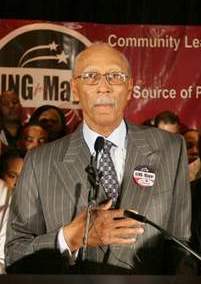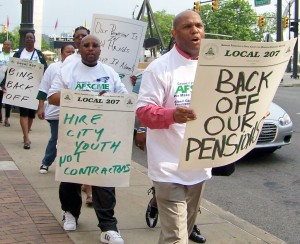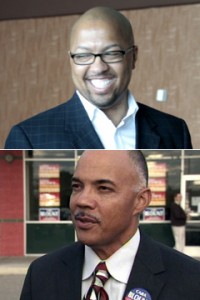By David Rambeau, free-lance writer on the Detroit Plantation
April 18, 2011
“Tell the truth to the people, tell no lies, claim no easy victories.” Amilcar Cabral, African revolutionary
This year, as usual, the city of Detroit must develop and enact its annual budget for the upcoming fiscal year which begins 1 July 2011. This is the task of the Mayor and his executive branch of city government, which, when completed, must be submitted to the city council for revision and eventually for approval.
This year several factors complicate this already mysterious, covert process. According to the mayor, the city is already $155 million in deficit as of April 2011 (with more deficit accruing in May and June) coming into the 1 July 2011 – 30 June 2012 budget. This simply means that each week the city is spending $3 million more than it is receiving in revenues. Earlier in this fiscal year 2010-2011 the city got a $250 million bond issued to cover an additional revenue shortfall, transferring this amount from part of the deficit to a contracted debt. Totaling those two items means that the city for this year was/is at least $405 million in deficit/debt, or $8 million per week.
Recently, Mayor Bing stated that unless significant budget cuts were made the city would be $1.2 billion in deficit by 2015, or in 4 years, and that would cause the governor to appoint a financial overseer. The governor promptly refuted this allegation and said he had no intention of taking over the city. Even if the governor hadn’t stated this, it wouldn’t have happened. Why? Because rational investors would stop buying the city’s tax anticipation bonds which are the only reason the city is currently still in business, such as it is. So essentially the mayor was blowing smoke.
Let’s look at that $1.2 billion shortfall the mayor predicted. For the sake of this analysis we’ll assume his figures are reasonable. That means a deficit of $155 million plus for this year and, on average, a $340 million deficit for each of the next three years. The mayor also said he wasn’t going to have massive layoffs, but was going to try to get the unions to renegotiate their recently agreed to contract with the city and thereby cut the deficit. Not likely.
Councilman Gary Brown said the city needed to layoff 1,000 workers. Let’s examine this.
Suppose each city worker averages $50,000 salary and $50K in benefits each year. That’s $100,000 per worker per year. Multiply that by Brown’s 1,000 workers and that comes to $100 million saved or shaved off the deficit per year. But the deficit for this year $155 million (and rising), and the next fiscal year $340 million totals $495 million. To reach that total the city would have to layoff 4,950 workers who currently earn $100,000 in salary and benefits annually.
Since the city has about 12,000 workers, and if it lays off about 5,000 workers, it would have 7,000 remaining workers. Think what that would mean.
If we figured that the average city worker earns $80,000 in cash and benefits, the city would have to lay off about 6,100 workers, leaving about 5,900 workers remaining. Think what that would mean regarding service.
You can dispute these figures, or go into denial, or tell me I don’t know what I’m talking about, but, as the saying goes, “Ball don’t lie.”
Can the workers count this ? Yes. Can the workers understand this? Yes. Will they like it? No. Will they complain? Yes. Will they march and rally? Yes. Will that make any difference? No.
That’s why Bing and all of the executive branch should be in the community discussing this issue. Same for the city council. That’s why Bing’s “visionary” meetings last fall were irrelevant. It’s not about vision; it’s about money and productive capacity. But if you can’t state and communicate the problem accurately, you can’t solve the problem. Neither he nor the city council state the problem correctly. Moreover, I’m still waiting for the city council to present a State of The City paper for this year, much less a fiscal analysis. I don’t believe either have the courage to do so, except in vague, meaningless, self-serving generalities.
Let’s look at this situation from another angle. There are four city retirees for every working city employee. The executive branch states that retirees’ pensions and benefits cost $900 million per year or 30% of the city’s budget of $3.1 billion per year. Cut that $900 mill in half and the books are balanced. Can Bing do this? He can’t even bring it up. Not that it’s going to happen, but it states the historical and arithmetic nature of the problem. GM and Chrysler had the same (among many) problems, retirees’ pensions and benefits. You know where they ended up. Coleman Young should have declared the city bankrupt the day after he took office. That would have been visionary. He didn’t, neither will Bing.
All of this should be no surprise. The Detroit Public Schools and the Detroit Public Library are in the same boat. It’s called 60 plus students per class with the former and closing most of the branch libraries with the latter.
Let the games begin.
Post Script:
Immediately after the Mayor and his executive staff of about a dozen people made their presentation to the city council in the council chambers at city hall, they walked out, not waiting to hear in person a single public comment. Then the president of the city council limited each public comment to one (1) minute. One speaker, a union leader, indicated that the public had to wait until all the executive staff had entered the council chambers before any of the public could be admitted to chambers. Union workers, though they arrived before the executive staff, had to cool their heels while the bureaucrats filed in.
To add insult to injury when the budget hearing was cablecast on the public channel, the video producer (a part of the mayor’s staff) edited out the public comments from the videotape of the hearing, while the mayor and the council’s comments were cablecast, over and over and over again ad infinitum on the public channel.
Why then should black people think anybody (the mayor, his staff and the council) who never meets with them, never listens to them, and never involves them significantly in the process, is worthy of their trust and support?
These are but a few examples of the fiscal and democratic challenges and incompetencies, the arrogance and disrespect of Detroit’s city government for its residents. To arrive at the place we are now would obviously require many more over decades to bring us to our current condition. It would take volumes to communicate the seismic faults that permeate the system. Be advised, and carry on as best you can.
-30-
Reading reference: Collapse by Jared Diamond, a comprehensive, historical and sociological analysis of the decline of societies and civilizations.
David Rambeau is a free-lance writer, long-time producer of the television program, For My People, which airs Saturday mornings on WKBD-TV, Ch. 50. He is also the publisher of the Urban Theater Magazine. For more information access him through youtube.com/projectbaitdet, or his website: projectbait.blakgold.net. Comments may be sent to David Rambeau – facebook or projectbait@att.net. Project Bait’s website on You Tube can be accessed by clicking on http://www.youtube.com/user/ProjectBaitDET#g/a.








